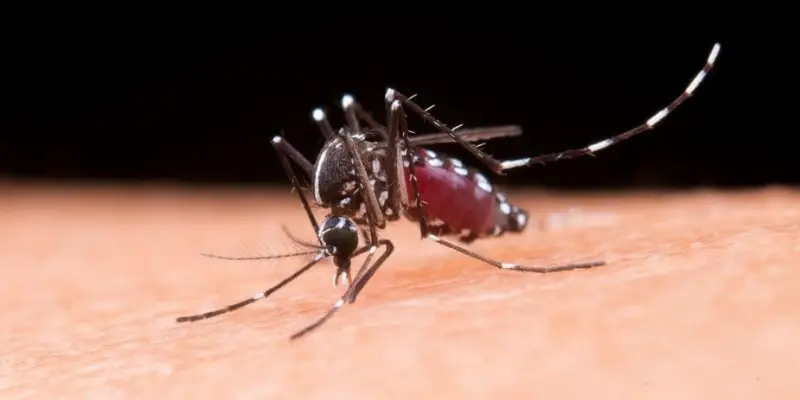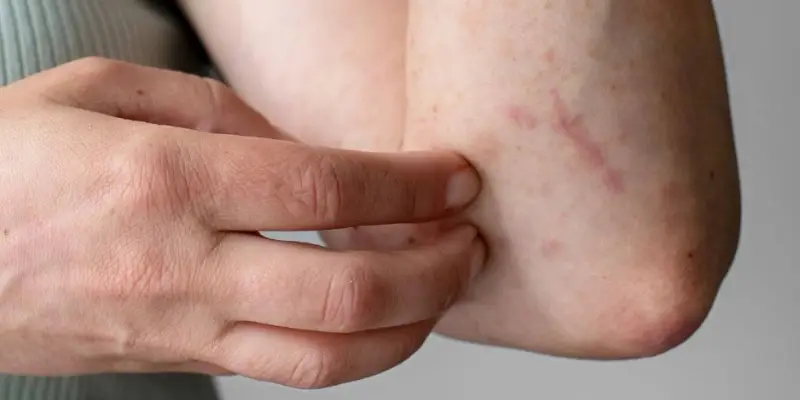Dengue Fever in Malaysia
Dengue Fever: A Growing Health Concern in Malaysia

Dengue fever is a mosquito-borne viral infection and a major public health concern in Malaysia. Warm temperatures, high humidity, and urban living conditions create an ideal environment for Aedes mosquitoes to breed.
Dengue cases tend to rise during monsoon seasons and periods of heavy rainfall, making early awareness, timely diagnosis, and prevention especially important for individuals and families.
What Is Dengue Fever?
Dengue fever is caused by the dengue virus (DENV) and spread through the bite of infected Aedes aegypti and Aedes albopictus mosquitoes.
There are four dengue virus serotypes (DENV-1 to DENV-4). Infection with one serotype provides lifelong immunity to that strain but not the others. Subsequent infections with different serotypes increase the risk of severe dengue.
How Do People Get Dengue? Is Dengue Contagious?
Dengue is not spread from person to person. Transmission occurs when:
A mosquito bites a person infected with dengue.
The virus multiplies inside the mosquito.
The mosquito then bites another person.
Aedes mosquitoes are most active:
Phases of Dengue Fever (Timing Matters for Treatment)
Febrile Phase (Days 1-5)
This phase typically begins suddenly. This is when dengue tests such as NS1 antigen tests are most accurate.
Sudden high fever (often >40°C)
Severe headache and pain behind the eyes
Muscle and joint pain (“breakbone fever”)
Nausea, vomiting, rash
Mild bleeding (gums, nose)
Critical Phase (Days 4-7)
This phase may begin after fever subsides. However, this is when some patients enter the critical stage, which lasts 24-48 hours.
Possible complications include:
Sudden drop in platelet count
Plasma leakage
Severe complications such as internal bleeding, shock, or organ failure
Immediate medical attention is crucial and required because this phase can be life-threatening.
Recovery Phase (Days 7-10)
The body starts reabsorbing fluids, and platelet count improves.
Symptoms improve considerably, though lingering fatigue is common.
Some patients develop an itchy “convalescent rash” as the body heals.
How Long Does Dengue Fever Last?
The primary dengue fever lasts 7-10 days. However, fatigue and weakness may last 2-4 weeks.
Post-dengue fatigue syndrome occasionally hampers daily activities and overall quality of life in some patients.
Dengue Symptoms & Warning Signs
Common Dengue Symptoms
Symptoms appear 4-10 days after being bitten by an infected Aedes mosquito:
High fever (above 40°C/104°F)
Severe headache
Pain behind the eyes
Muscle and joint pain
Nausea and vomiting
Skin rash (in half the cases)
Mild bleeding (nosebleeds or gum bleeding)
Warning Signs of Severe Dengue (ALL-LOVES)
Severe dengue manifests with plasma leakage, fluid buildup, organ impairment, and internal bleeding. The ALL-LOVES acronym helps identify these risks. Seek urgent care if any of the following occur:
Abdominal pain
Liver enlargement
Low platelets, high haematocrit
Lethargy or restlessness
Oliguria (reduced urine output)
Vomiting (persistent)
Effusion (fluid in chest/abdomen)
Significant bleeding
Dengue Test and Platelet Count

Common Dengue Tests
NS1 Antigen Test: Detects dengue virus early (1–5 days post-infection).
IgM and IgG Antibody Tests: IgM indicates recent dengue infection; IgG shows past exposures.
RT-PCR: Identifies viral RNA and serotypes, effective in early detection and serotyping).
What Is a Dangerous Platelet Count?
A Complete Blood Count (CBC) test is essential to evaluate severity of the dengue infection according to platelet levels:
Normal platelet count: 150,000-450,000 / μL
Mild thrombocytopenia: <150,000 per μL
Severe thrombocytopenia (severe dengue risk): <50,000 per μL
Dengue Treatment and Management
There is no specific antiviral cure for dengue. Treatment focuses on supportive care.
Hydration
Fever & Pain Control
Treat fever and pain with paracetamol only.
Avoid aspirin, ibuprofen, and NSAIDs due to bleeding risks.
Monitoring
Dengue vs Chikungunya: How to Tell the Difference
Dengue and chikungunya are both mosquito-borne viral infections commonly seen in Malaysia and are often confused due to their similar early symptoms, such as fever, body aches, and fatigue. However, the two conditions differ in terms of severity, complications, and recovery, making accurate diagnosis important.
Understanding these differences helps patients seek timely care and avoid potential complications, especially when symptoms worsen or do not improve as expected.
Fever
High, sudden
Moderate
Joint pain
Mild-severe
Severe, long-lasting
Platelets
Often low
Usually normal
Complications
Dengue Haemorrhagic Fever (DHF)
Dengue Shock Syndrome (DSS)
Possible chronic arthritis
How to Prevent Dengue (for Individuals and Households)
Preventing dengue focuses on avoiding mosquito bites and eliminating mosquito breeding sites, especially in tropical climates like Malaysia.
Prevent Mosquito Bites
Aedes mosquitoes are most active during the day, particularly in the early morning and late afternoon.
Use insect repellents containing DEET or PMD (oil of lemon eucalyptus), especially when outdoors.
Wear long-sleeved clothing and long trousers to reduce skin exposure.
Use mosquito nets or window screens, particularly for infants, elderly individuals, and during daytime naps.
Eliminate Mosquito Breeding Sites
Aedes mosquitoes breed in clean, stagnant water, often found in and around homes.
Clear standing water weekly from containers, buckets, flower pots, and discarded items.
Clean plant saucers, gutters, and drains regularly.
Ensure water storage containers are tightly covered.
Household & Community Measures
Community-wide efforts are essential to reduce dengue outbreaks.
Participate in fogging activities during dengue outbreaks as advised by local authorities.
Maintain neighbourhood cleanliness, including shared spaces and drains.
Use mosquito traps or repellents indoors to reduce mosquito populations.
Dengue Vaccine in Malaysia: What You Should Know
(No changes to image)
Dengue vaccination is available in Malaysia as part of a broader strategy to reduce the risk of severe dengue and dengue-related complications. Vaccination does not replace mosquito control measures, but it may provide additional protection for selected individuals.
What Dengue Vaccination Can Help With
Dengue vaccination may:
Reduce the risk of severe dengue infection
Lower the likelihood of hospitalisation
Provide protection against multiple dengue virus serotypes
Who May Benefit from Dengue Vaccination
Suitability for dengue vaccination depends on age, previous dengue exposure, and individual medical history and risk factors. A medical assessment may be required before vaccination to determine whether it is appropriate.Your doctor will advise if dengue vaccination is suitable for you or your child based on current clinical guidelines.
Book Dengue Testing or Vaccination at Prince Court Medical Centre
Early testing, close monitoring, and preventive vaccination can significantly reduce dengue complications.
Schedule your dengue vaccination at Prince Court Medical Centre by calling +603-2160 0000, or submit your inquiries if you have questions and concerns about dengue vaccination through our online enquiry form.
For urgent cases, please contact our
Accident & Emergency (A&E) Department at +603-2160 0999.



















